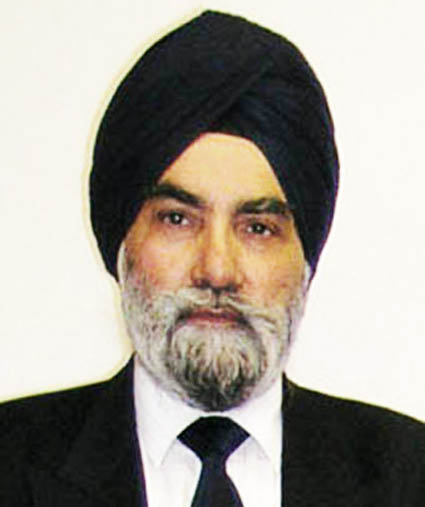Respecting and Restoring Miri Piri Sovereignty of the Institution of Sri Akal Takht Sahib

The divided Akali Party rejected by the Sikhs of Panjab in recent Parliamentary elections, and the involvement of Sri Akal Takht Sahib as a last resort, have brought Panthic focus back to the reality of the source of Panthic power and progress. Traditionally, that source is the Institution of Sri Akal Takht Sahib. Late Sirdar Kapur Singh in his essay: The Golden Temple: Its Theo-Political Status, clarified the concept of double sovereignty in Sikhi tradition.
Over the last few decades, the Institution of Sri Akal Takh Sahib should have been the Sikhi Lighthouse guiding temporal Sikh affairs and leadership away from dangers of anti-Panthic decisions and compromising alliances with derawadis and political parties. Instead, for too long, the successive senior sewadars of the Takht, the jathedars, themselves became a party to anti-Panthic decisions. They are not selected on merit basis by the Khalsa Panth but have been political appointees lacking qualifications, qualities, sense of mission and vision commensurate with the high office. In the same way, the SGPC has not operated independently. Much news and articles coverage has been given to the mistakes made and space does allow a repeat.
The Miri-Piri Shakti (power) of the Guru and the collective Panth manifests Itself through the Institution of Sri Akal Takht Sahib where Sikhi sidhaant (ideology) should rule supreme. When the wishes of the Khalsa Panth Collective are independently sought and made known fearlessly.
In the same way, temporal governments can only function as true democracies when the rule of law is supreme and minority rights are protected. Neither Sri Akal Takh Sahib nor the governmental institutions can work properly when those founding principles are ignored. For examples, when we look at the recent history of both Sri Akal Takht Sahib as the supreme Sikh institution, and India as a democracy, both have failed because the former moved away from Sikhi principles and the latter from democratic processes and safeguards.
The Jathedar is the facilitator and not the decision maker at Akal Takht. Even less so if put there by external political interests as has been the case in the last few decades. If the incumbent jathedars are not seen to be serving the Institution as independent sevadars of the Khalsa Panth, then they lose trust of the Sangats. They lose credibility as independent spokespersons of the Khalsa Panth on Sikhi miri-piri issues and are no longer heard or heeded by the Sikh world.
Sadly that is the present state of Panthic affairs. The underlying principle of Sri Akal Takh Sahib has not been followed and the leaders of the broken Akali Dal are seeking solutions at the Takht in vain when successive jathedars themselves compromised the Miri-Piri sovereignty of this great Institution.
Instead, the Panthic Will has manifested itself elsewhere through the election of independent MPs at Khadur Sahib and Faridkot. Respect for the sovereignty of the Institution of Sri Akal Takht is only possible if proper consultation and selection processes are in place. There has been no shortage of advice about the qualifications of the jathedars and the manner in which supporting information and expert advisory services should be organised.
Sikh Diaspora should be involved in the decision-making process about Panthic affairs. Modern communication and IT means are available and should be used. The Panth is global and there is need for hierarchical two way flow of communication and consultations. The need and the means are there.
Gurmukh Singh OBE
Principal Civil Servant ret&rsquod (UK)